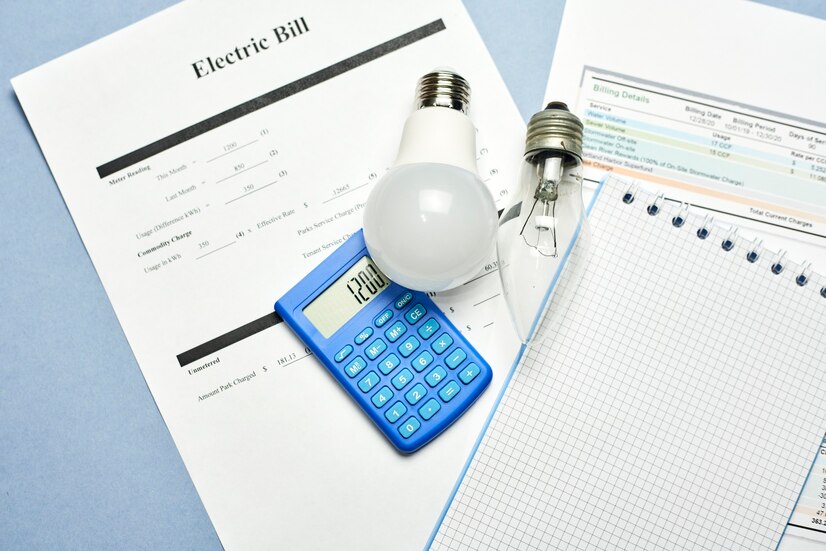If you are a business owner or manager, you may wonder how to cope with the rising energy costs affecting your bottom line. Energy bills are one of the major expenses for many businesses, especially those that rely on gas and electricity for their operations. With the volatility of the energy market and the uncertainty of the future, it can be hard to plan and budget for your energy needs.
Fortunately, there is some good news for businesses in the UK. The government has announced a new scheme called the Energy Bill Discount Scheme that aims to provide relief and support for businesses with high energy bills. The scheme will run for 12 months, from 1 April 2023 to 31 March 2024. Here we will explain the EBDS, how it works, how to apply for it, and its benefits and drawbacks.
Energy Bill Discount Scheme History and Background
The Energy Price Spike of 2022-2023 led to the establishment of the EBDS. The gas and electricity prices surge was caused by low wind output, high demand, reduced supply, and global market conditions. This surge affected many energy-intensive businesses and organisations, risking closure or bankruptcy due to the increased costs.
To provide relief to businesses and organisations, the government launched the Energy Bill Relief Scheme in October 2022. Eligible customers on variable tariffs or deemed contracts receive £400 monthly for six months. However, this scheme has been criticised for excluding customers on fixed-price or flexible purchase contracts and not considering different sectors’ energy needs and consumption patterns.
Therefore, the government replaced the Energy Bill Relief Scheme with the Energy Bill Discount Scheme in April 2023. The EBDS is designed to be more comprehensive and targeted, as it offers three different types of support:
- Baseline Discount – Offers support to eligible non-domestic customers in Great Britain and Northern Ireland. This provides relief on energy bills.,
- Energy and Trade Intensive Industries (ETII) Discount – Gives elevated support to eligible businesses in qualified sectors and supports energy-intensive industries.
- Heat Network Discount – Provides increased aid to heat networks serving domestic end consumers and offers relief on heat bills.
The EBDS is funded by a levy on energy suppliers, which is passed on to all domestic and non-domestic customers through their bills. The levy is expected to raise around £1.5 billion throughout the scheme.
Energy Bill Discount Scheme Benefits and Drawbacks
The EBDS has some benefits and drawbacks for both businesses and consumers.
Benefits of the EBDS
The EBDS has several benefits for the businesses and organisations that qualify for the scheme. Some of these benefits are:
- It helps businesses and organisations reduce energy costs and improve cash flow. The discount can range from 10% to 90% depending on the sector and the type of energy contract.
- It supports businesses and organisations in sectors vital for the UK economy and employment, such as manufacturing, steel, chemicals, ceramics, glass, paper, food, and drink. These sectors are exposed to international competition and face high energy costs due to their intensive use of electricity or gas.
- It encourages businesses and organisations to invest in energy efficiency and low-carbon technologies. The scheme requires participants to sign up for a Climate Change Agreement (CCA), which sets targets for reducing their energy consumption and carbon emissions.
- It protects consumers from potential disruptions in heat supply or price increases. The scheme helps to maintain the security and affordability of heat supply in the UK, especially during periods of high demand or low availability.
Drawbacks of the EBDS
The EBDS also has some drawbacks for both businesses and consumers. Some of these drawbacks are:
- It does not cover all types of energy contracts or tariffs, such as green tariffs or prepayment meters. The scheme only applies to contracts based on the wholesale price of electricity or gas, which excludes some customers with fixed or variable tariffs.
- It does not tackle the structural issues that affect the energy market, such as the lack of investment in infrastructure, generation capacity, and renewable sources.
- It increases the energy bills of all customers, including those who are not eligible for the scheme, through the levy. The levy is estimated to add about £5 per year to the average household bill and £20 per year to the average small business bill. The levy also reduces the incentive for customers to switch to cheaper or greener suppliers.
- It may distort the energy market and create unfair competition among businesses and organisations. The scheme may give an advantage to some sectors over others, or to some businesses within the same sector, depending on their eligibility criteria and discount rate.
How to Apply for Energy Bill Discount Scheme
The application process for the EBDS depends on the type of support you are eligible for.
Baseline Discount
You do not need to apply for the baseline discount, as it is applied automatically by your energy supplier. You should see the discount reflected on your bills from April 2023 onwards.
Energy and Trade Intensive Industries Discount
You must apply online through the government website for the Energy and Trade Intensive Industries (ETII) discount. You must provide evidence that you meet the eligibility criteria, such as your financial accounts, Standard Industrial Classification (SIC) code, and energy contract details. You must apply within 90 days from the date you became eligible or by 25 July 2023, whichever is earlier.
Heat Network Discount
You need to apply online for the Heat Network discount through the government website. You must provide evidence that you meet the eligibility criteria, such as your heat network registration number, heat supply contract details, and customer data. You must apply within 90 days from the date you became eligible or by 25 July 2023, whichever is earlier.
Conclusion
The Energy Bill Discount Scheme is a temporary measure to help businesses and organisations cope with high energy prices. It offers different levels of support depending on the type and size of the business or organisation and the sector they operate in. You must check your eligibility and follow the online application process to apply for the scheme. The scheme has some benefits and drawbacks for businesses and consumers, and it is expected to end by March 2024.
Also read: Cons of Hydroelectric Energy











